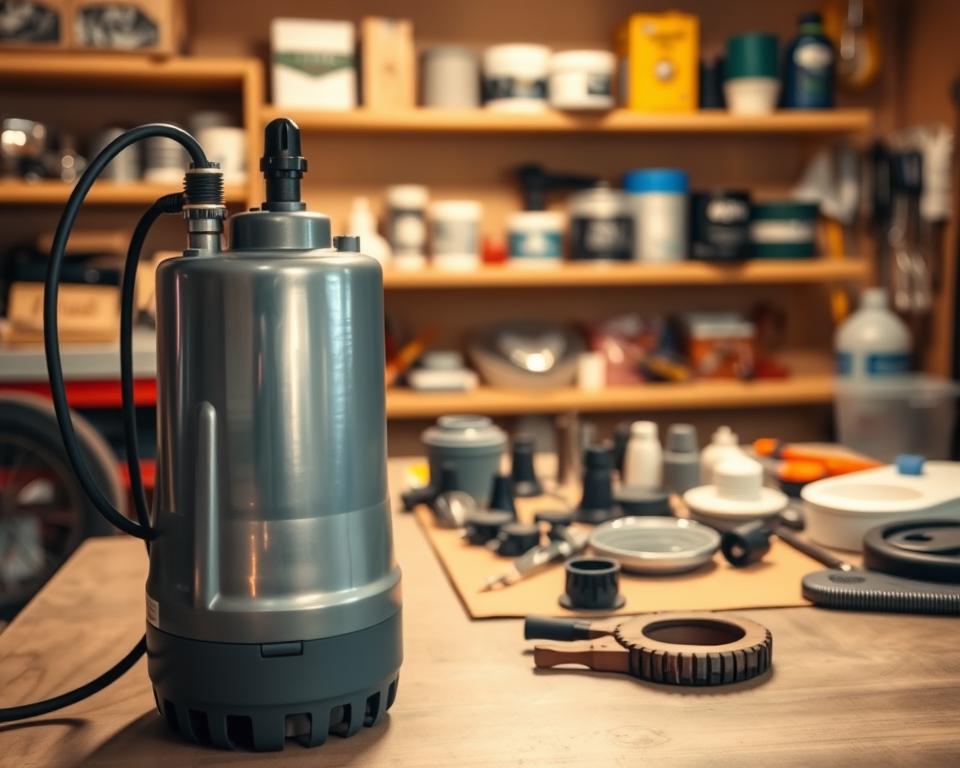Septic Tank Pumping: Keep Your System Healthy
Ever considered the effects of ignoring your sewage system? For countless households across the United States, maintaining a septic system is paramount for safe sewage disposal and effective wastewater management. Regular pumping of the septic tank is crucial, not just a recommendation. Ignoring this can lead to expensive repairs and pose serious health risks from pathogen contamination. With a well-maintained system potentially lasting up to 30 years, it’s crucial to understand the significance of routine upkeep. Engaging with expert solutions like a reputable provider guarantees your system works efficiently, protects the eco-system, and protects your home. Learn why restaurant grease trap cleaning near me is vital for a safe home environment.
Understanding Your Septic System
Understanding the parts of a septic system is crucial to proficient sewage handling. A properly working unit treats household waste efficiently, protecting local water resources. Each system part is crucial for the sewage treatment process.
Parts of a Sewage Unit
A standard unit includes household plumbing, a septic tank, and a soil treatment area. Sewage from your home enters the waste container, where debris sinks as sludge at the bottom and oils create a scum layer on the surface. It’s essential to schedule consistent checks to ensure everything works as it ought to. If upkeep is ignored, solids might leak into the filtration area, causing system failure.
How Wastewater is Processed
The sewage treatment process in a unit combines physical and natural methods. First, sewage remains in the septic tank for about 24 hours. During this time, solids settle, and anaerobic bacteria start breaking down the muck. Then, the liquid effluent flows to the soil treatment area for additional purification. When well-kept, septic tanks manage sewage efficiently, preventing spills and protecting nearby water bodies from harmful pathogens and chemicals.
Septic Tank Pumping: Importance and Frequency
Regular septic tank pumping is crucial for the longevity and efficiency of your septic system. It’s important to know when to plan this critical maintenance to prevent costly fixes and guarantee proper sewage disposal. Typically, most homes should empty their units every three to five years. However, this frequency can vary based on various factors.
Optimal Times for Septic Tank Maintenance
Indicators pointing to you need to pump your unit include:
- Reduced flow in sinks and lavatories.
- Foul smells around the unit or drain field.
- Waste overflows in drains or lavatories.
Consistent checks can also offer information into the unit’s condition. They help determine when pumping is needed. Partnering with an experienced service provider for routine assessments guarantees you comply with local regulations on septic system maintenance.
Elements Influencing Septic Tank Maintenance
Several factors affect how frequently you should pump your septic tank:
- Number of Residents: Bigger families produce more wastewater, resulting in faster sludge buildup.
- Consumption Levels: Increased water consumption means faster accumulation, requiring more frequent pumping.
- Tank Capacity: Smaller tanks may need emptying more often than bigger units.
- Nature of Refuse: Disposing non-organic materials impacts waste management effectiveness.
- Environmental Conditions: Excessive rain can saturate the filtration area, affecting its performance and possibly raising maintenance requirements.
Adopting a consistent emptying routine that suits your particular requirements not only safeguards your septic system. It also guarantees effective drain field cleaning.
Signs Your Septic System Needs Attention
Homeowners must stay alert for signs of a failing septic system. Recognizing these issues promptly can avoid expensive fixes and ensure a safe surroundings. Here are critical indicators that indicate your septic system needs immediate attention.
Signs of a Malfunctioning Unit
Several visible and sound-based cues may indicate septic system problems. These include:
- Reduced flow throughout the house
- Gurgling sounds coming from pipes
- Unpleasant smells surrounding the tank or drain field
- Standing liquid or unusually lush vegetation on the drain field
Ignoring these indicators can lead to raw sewage backflowing into your home or seeping into the groundwater. This increases the requirement for waste management and unit upkeep.
Health and Environmental Risks
A failing unit poses major dangers. Raw waste threatens groundwater quality, possibly polluting potable water and causing community issues. Microbial outbreaks and viruses can multiply in raw sewage, requiring immediate sanitation services to address system failures.
Compliance with environmental regulations is crucial to avoid harmful algae blooms and other ecological hazards from contaminating nearby water sources.
| Indicators of Unit Malfunction | Potential Consequences |
|---|---|
| Slow Drains | Waste entering residence |
| Noises in Pipes | Indicates air trapped in the pipes |
| Foul Odors | Presence of untreated waste in the environment |
| Standing Liquid | Risk of groundwater contamination |
Best Practices for Septic System Maintenance
Maintaining a septic system requires a blend of strategies. This includes efficient water use and being careful about what goes into the unit. These optimal methods are crucial for ensuring your unit works efficiently and meets sanitation standards. They also help following eco-friendly regulations.
Methods for Efficient Water Use
Efficient water use methods can significantly improve your sewage unit’s efficiency and durability. Here are some effective techniques:
- Fix any leaks in taps and toilets immediately to avoid wasteful consumption.
- Use water-saving devices in showers, faucets, and toilets to minimize water waste.
- Space out water usage throughout the day to prevent overloading the unit with a large volume of liquid at one time.
- Educate family members about water-efficient practices, encouraging them to be aware of their usage.
These methods not only lower usage but also support effective sewage disposal. This prolongs the time until the next emptying.
Dos and Don’ts for Septic Care
Effective unit upkeep requires understanding what to do and what to prevent:
- Ensure you schedule regular pumping based on the unit capacity and family requirements.
- Do practice efficient water use to maintain system efficiency.
- Be sure to safeguard the unit by employing organic items.
- Do inspect system components frequently to identify possible problems promptly.
- Don’t dispose of non-organic items, grease, or dangerous substances.
- Refrain from overload the system with too much liquid at once.
- Never neglect indicators of issues, as this can cause expensive fixes and affect environmental compliance.
By following these rules, homeowners can effectively upkeep their sewage units. This ensures environmental compliance and promotes long-term health for both the system and the environment.
Hiring a Professional Septic Tank Pumping Service
Opting for a trusted professional service for sewage unit maintenance, such as Grease Trap Pumping Service, is essential for proper waste management and septic system maintenance. Certified and skilled technicians grasp the intricacies of septic systems. They guarantee refuse is handled and removed properly, following regulatory guidelines. This method not only reduces hazards but also benefits your neighborhood’s well-being.
Homeowners must schedule consistent evaluations with experts for assessments and pumping. This preventative approach assesses your septic system’s condition, extends its life, and prevents costly repairs due to neglect. By choosing expert services, you enhance your unit’s productivity and protect the environment.
Furthermore, partnering with a reputable provider guarantees compliance to local regulations, offering peace of mind. Consistent upkeep and timely pumping are crucial for safeguarding your property and improving your surroundings. Highlighting the significance of hiring a septic tank pumping service yields lasting benefits and a worry-free sewage unit upkeep.



